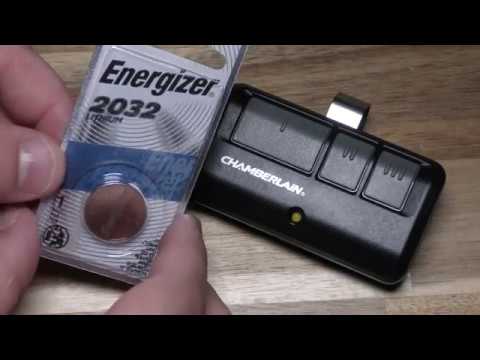Have you ever wondered if your garage door opener relies on batteries to function? The question, “Do garage door openers have batteries?” is a common one among homeowners seeking to understand the inner workings of their garage door systems. In this informative article, we’ll delve into the intricacies of garage door opener technology to provide a clear answer to this pressing question and shed light on the role of batteries in these essential household devices.

Exploring the Power Source of Garage Door Openers
Understanding the Basics
Garage door openers are electromechanical devices designed to automate the process of opening and closing garage doors. Traditionally, these openers were powered by electricity from a standard household outlet, with the motor driving the opening and closing mechanism of the garage door.
Do Garage Door Openers Have Batteries?
While the primary power source for garage door openers is typically electricity from the home’s electrical system, many modern models also incorporate battery-powered components. These batteries serve various purposes within the garage door opener system, but whether or not your specific opener requires batteries depends on its design and features.
Read too: The Complete Guide to Tighten Chain On Garage Door Opener for Smooth Operation
Battery-Powered Components in Garage Door Openers
- Remote Control Transmitters: Most garage door openers come with remote control transmitters that allow users to operate the opener from a distance. These remotes often use small batteries, such as AA or AAA, to power the transmitter’s circuitry and send signals to the opener.
- Backup Battery Systems: Some garage door openers are equipped with backup battery systems designed to provide power in the event of a power outage. These backup batteries ensure that the garage door opener remains operational even when the home’s electricity is unavailable, allowing for continued use during emergencies.
- Keypad Entry Systems: Garage door opener keypads, which allow for manual entry of access codes to open the door, may also rely on batteries for power. These batteries power the keypad’s display and circuitry, ensuring reliable operation without the need for a direct electrical connection.
Importance of Battery Maintenance
Maintaining Remote Control Batteries
If your garage door opener utilizes remote control transmitters, it’s essential to regularly check and replace the batteries as needed to ensure reliable operation. Weak or depleted batteries can result in diminished signal strength and responsiveness, leading to issues with remote functionality.
Testing Backup Battery Systems
For garage door openers equipped with backup battery systems, periodic testing of the batteries is crucial to verify their readiness for use during power outages. Follow the manufacturer’s instructions for testing and replacing backup batteries to maintain the reliability of your garage door opener system.
Extending Battery Life
To prolong the lifespan of batteries in garage door opener components, consider the following tips:
- Use high-quality batteries from reputable brands for optimal performance.
- Store spare batteries in a cool, dry place to prevent degradation.
- Remember to remove batteries from remote controls or keypads if you’re not going to use them for an extended period.
- Clean battery contacts regularly to ensure proper connections and minimize corrosion.
Conclusion
In conclusion, the question “Do garage door openers have batteries?” is not a straightforward one, as the answer depends on the specific features and design of your garage door opener. While the primary power source for garage door openers is typically electricity from the home’s electrical system, many modern models incorporate battery-powered components such as remote control transmitters, backup battery systems, and keypad entry systems. By understanding the role of batteries in garage door opener technology and following proper maintenance practices, you can ensure the reliable operation of your garage door system for years to come.



Leave a Reply